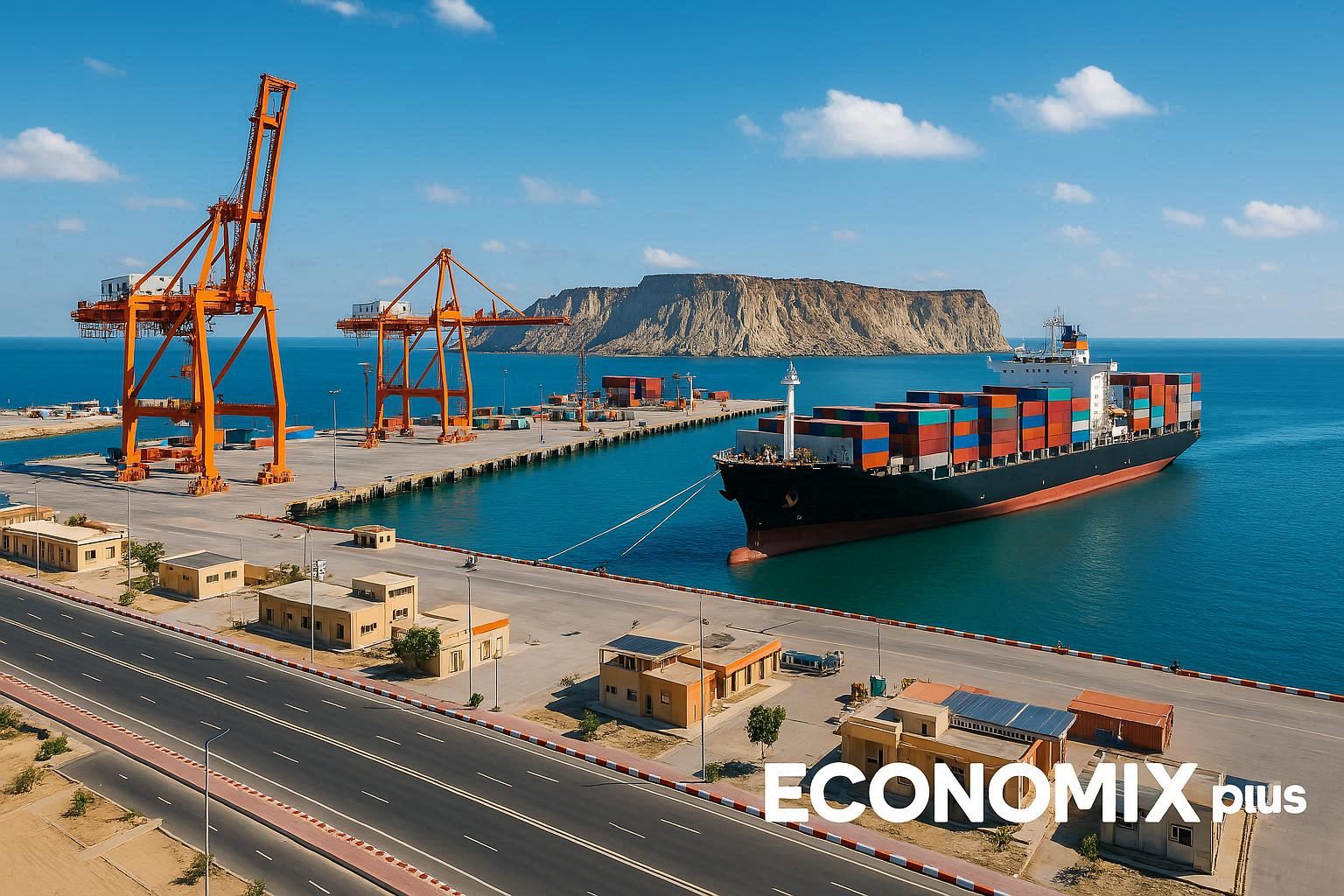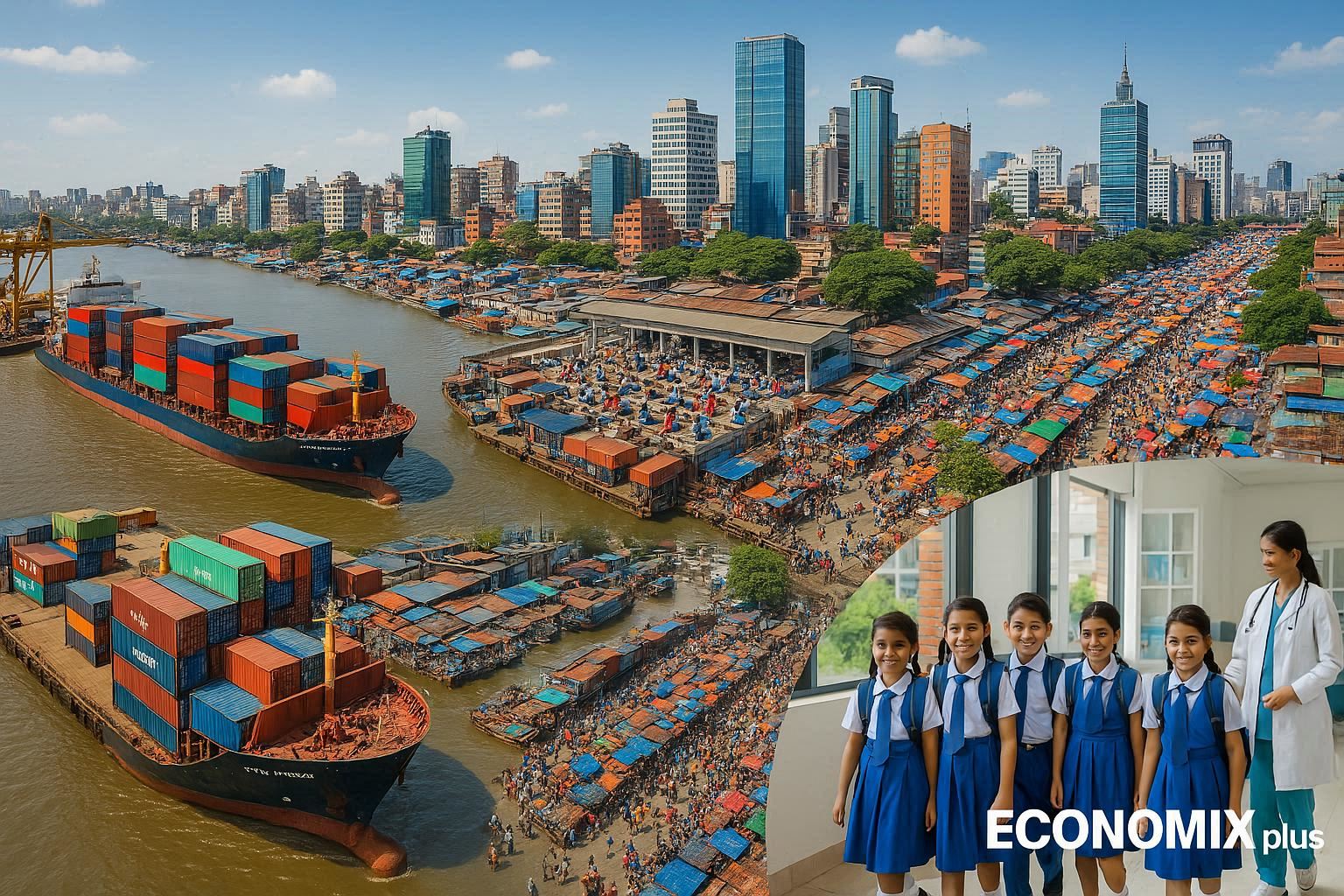Thailand has consistently outperformed its neighboring countries in attracting foreign direct investment, establishing itself as a premier investment destination in Southeast Asia.
With a GDP of $1.517 trillion at the end of 2023, Thailand stands out as the 9th largest economy in Asia, offering a stable business environment that balances growth potential with manageable risk.
The country’s strategic location at the heart of the ASEAN Economic Community, a 10-nation Southeast Asian common market of 676.6 million consumers, makes it an attractive hub for international investors looking to establish or expand their presence in the region.
Key Takeaways
- Thailand’s strategic location and business-friendly policies attract foreign investment.
- The country’s robust infrastructure supports international business expansion.
- Thailand’s economy offers a balance of growth potential and manageable risk.
- The ASEAN Economic Community provides access to a vast consumer market.
- Thailand’s investor-friendly environment drives foreign direct investment.
Thailand’s Strategic Position in Southeast Asia
With its central location in Southeast Asia, Thailand offers unparalleled access to emerging markets and major economies. This strategic position is a significant factor in attracting foreign investment into the country.
Gateway to ASEAN and Asian Markets
Thailand serves as a gateway to the ASEAN Economic Community, a vast market comprising 676.6 million consumers across 10 nations. The location provides convenient access to major economic powers, including China and India, as well as emerging markets in the Greater Mekong Subregion. Businesses based in Thailand can reach 181.5 million consumers within 1,000 kilometers and approximately 4.8 billion people across Asia within 5,000 kilometers.

Geographical Advantages Over Neighboring Countries
Unlike some neighboring countries with more peripheral locations, Thailand sits at the crossroads of mainland Southeast Asia, offering logistical advantages for companies establishing regional headquarters or distribution centers. The economy benefits from its central position in ASEAN, developing as a natural hub for trade, investment, and regional operations. This gives Thailand a competitive edge over neighboring countries with less advantageous geographic positions, making it an attractive business destination.
Overall, Thailand’s strategic position in Southeast Asia, coupled with its excellent transportation infrastructure, makes it an ideal location for business and a prime target for foreign investment, driving growth in the regional economy.
Economic Stability and Growth Factors
Thailand’s economic stability is underscored by its consistent GDP growth, controlled inflation, and relatively low public debt. This stability creates a secure environment for long-term investments, making Thailand an attractive destination for foreign investors.
Thailand’s Economic Performance in Regional Context
Thailand’s economic performance stands out among its neighbors, with a GDP per capita based on purchasing power parity (PPP) projected to be approximately $26,416 by 2025, according to the International Monetary Fund (IMF). The country’s economy is characterized by steady growth, strong exports, and a vibrant domestic consumer market. In 2024, Thailand’s international trade reached $607 billion, a 5.89% increase from 2023, driven by both exports and imports.

Resilience During Global Economic Challenges
Thailand has demonstrated remarkable economic resilience during global challenges, including the Asian Financial Crisis, the 2008 Global Financial Crisis, and the COVID-19 pandemic. The country’s robust export sector, which totaled $301 billion in 2024, provides a solid foundation for economic stability and attracts investment in manufacturing and export-oriented industries.
Consumer Market Potential
The domestic consumer market in Thailand, comprising 67 million people, including 52 million middle-class consumers with increasing purchasing power, offers substantial opportunities for investors. Thailand’s economic development has created a diverse economy spanning agriculture, manufacturing, and services, reducing vulnerability to sector-specific downturns and providing multiple entry points for foreign investors across various industries.
Overall, Thailand’s economic stability, resilience, and consumer market potential make it an attractive destination for foreign investment, supporting long-term economic development and growth.
Government Policies Attracting Foreign Investment
Thailand’s government has established a comprehensive framework to attract foreign direct investment, distinguishing it from its regional counterparts. This framework is supported by various policies and incentives designed to create a welcoming environment for international businesses.

The Board of Investment (BOI) and Investment Promotion
The Board of Investment (BOI), established in 1966, serves as the primary agency for investment promotion in Thailand. It offers a streamlined process for foreign investors to access incentives and navigate regulatory requirements. The BOI implements investment promotion policies aimed at attracting and supporting foreign investment, including both tax and non-tax incentives.
Key roles of the BOI include:
- Promoting investment opportunities in Thailand
- Providing assistance with investment procedures
- Offering incentives to qualifying projects
Foreign Business Act and Investment Regulations
The Foreign Business Act (FBA) B.E. 2542 (1999) governs most investment activities by non-Thai nationals. It provides clarity on business activities open to foreign investment, ensuring a transparent regulatory environment. The Act, along with the Investment Promotion Act B.E. 2520 (1977), establishes the legal framework for investment promotion and regulation in Thailand.
Tax Incentives and Special Economic Privileges
Thailand offers a range of tax incentives to attract foreign investment, including corporate income tax holidays for specified periods and exemptions from import duties on machinery and raw materials. Non-tax incentives include assistance with work permits for expatriate employees and potential permission for foreign ownership of land. These incentives create a compelling package for international businesses considering investment in Thailand.
The Thai government’s policies have been instrumental in attracting foreign investment, driven by a combination of incentives and regulatory support. With its comprehensive framework and welcoming environment, Thailand continues to be an attractive destination for foreign investors.
Infrastructure Development and Connectivity
Thailand’s infrastructure development has enhanced its appeal to investors, creating a conducive environment for businesses to thrive. The country’s strategic investments in transportation, digital infrastructure, and utilities have positioned it as a hub for industries and services in Southeast Asia.
Transportation Networks and Logistics Capabilities
Thailand boasts an extensive transportation network, including six international airports, deep-sea ports, 4,000 kilometers of railways, and over 390,000 kilometers of highways. This comprehensive infrastructure facilitates the efficient movement of goods and people, supporting various industries and enhancing logistics capabilities.
| Transportation Mode | Extent of Network | Key Features |
|---|---|---|
| Airports | 6 International Airports | Global Connectivity |
| Railways | 4,000 km | Efficient Land Transport |
| Highways | Over 390,000 km | Comprehensive Road Network |
Digital Infrastructure and Technological Readiness
Thailand has made significant strides in digital infrastructure, with nationwide 5G coverage and high-speed broadband access. The government’s initiatives, such as the Net Pracharat Project, have expanded internet access to over 25,000 villages, ensuring digital inclusivity. Advanced data center facilities support technology-dependent businesses, enhancing Thailand’s technological readiness.

Utilities and Industrial Estate Development
The development of specialized industrial estates with integrated utilities, waste management systems, and business support services provides turnkey solutions for manufacturing investors. These estates are equipped with sophisticated facilities, meeting the needs of multinationals and SMEs alike, and supporting rapid operational deployment.
Overall, Thailand’s superior infrastructure development creates a competitive advantage, attracting investment and supporting businesses across various sectors. The government’s commitment to infrastructure modernization through initiatives like Thailand 4.0 demonstrates a long-term vision for creating an environment conducive to advanced business operations and technological innovation.
Why Does Thailand Attract More Foreign Investment Than Its Neighbors
Thailand’s ability to attract more foreign investment than its neighbors can be attributed to several key factors. The country’s strategic position in Southeast Asia, combined with its business-friendly environment, makes it an attractive destination for foreign investors.
Comparative Advantages Over CLMV Countries
Thailand consistently outperforms its CLMV neighbors (Cambodia, Laos, Myanmar, Vietnam) in attracting foreign direct investment due to its more developed infrastructure, larger consumer market, and longer history of investment-friendly policies. While Vietnam has emerged as a strong competitor for manufacturing investment, Thailand maintains advantages in higher-value industries, technical expertise, and logistics capabilities.
| Country | Foreign Investment (2023) | Main Industries |
|---|---|---|
| Thailand | $X billion | Automotive, Electronics |
| Vietnam | $Y billion | Manufacturing, Electronics |
| Cambodia | $Z billion | Textiles, Garments |
Investment Climate Comparison with Regional Competitors
Thailand’s investment climate is more favorable compared to some of its regional competitors. The diversity of Thailand’s foreign investor base—with Japan, China, Singapore, the United States, and European countries all maintaining significant presences—demonstrates its broad international appeal.

Foreign Investor Testimonials and Success Stories
Foreign investors consistently cite Thailand’s business-friendly environment, political stability relative to some neighbors, and transparent regulatory framework as key factors in their decision to choose Thailand. Success stories from multinational corporations that have established regional headquarters or manufacturing facilities in Thailand serve as powerful testimonials.
In 2023, China was the leading foreign investor in Thailand, followed by Singapore and the United States. Japan was again the top investor in the first five months of 2024, with 84 approved projects valuing 40,214 million baht.
Key Industries and Sectors Driving Foreign Investment
Thailand’s diverse economy and strategic initiatives have made it an attractive destination for foreign investment across various industries. The country’s ability to attract significant foreign capital is largely due to its focus on developing key sectors that offer high growth potential.
Automotive and Electronics Manufacturing
Thailand has established itself as a regional hub for automotive manufacturing, with a complete supply chain ecosystem that has attracted investment from major automakers worldwide. The country’s electronics sector is another pillar of industrial strength, producing hard disk drives, integrated circuits, and electronic components. Recent expansions into electric vehicle production have further boosted the sector, with companies like Mercedes and Great Wall Motor investing heavily.
Tourism and Service Industries
Thailand’s tourism and hospitality industries continue to attract significant foreign investment in hotels, resorts, and entertainment facilities. The country’s global reputation as a premier travel destination makes it an attractive location for services-related investments, including healthcare and entertainment.
Emerging Sectors: Digital Economy, Biotechnology, and Green Industries
The Thai government has strategically identified and promoted investment in emerging high-value sectors, including biotechnology, digital economy, and green industries. These sectors are supported by targeted incentives and infrastructure development, making Thailand an attractive location for capital investment in technology and innovation. Agriculture and food processing also remain important, with opportunities for value-added processing and sustainable farming technologies.
The Eastern Economic Corridor: Thailand’s Investment Flagship
The Eastern Economic Corridor (EEC) is a megaproject initiated by the Thai government to transform the country’s economy and attract significant foreign investment. Spanning over 13,000 square kilometers across Chachoengsao, Chonburi, and Rayong provinces, the EEC is designed to be a leading economic zone in ASEAN, focusing on industrial, infrastructure, and urban development.
Strategic Vision and Development Plan
The EEC’s strategic vision is to create a world-class business environment that surpasses neighboring countries. With a planned investment of approximately US$50 billion in its initial phase, the EEC demonstrates Thailand’s commitment to economic development. The development plan includes the creation of specialized zones such as the Eastern Airport City (EECa), the Eastern Economic Corridor of Innovation (EECi), and Digital Park Thailand (EECd), which are designed to foster innovation and attract foreign investors.
The EEC offers numerous incentives, including tax breaks, regulatory concessions, and high-end infrastructure, making it an attractive destination for foreign investors. The Thai government has implemented various policies to support innovation-led businesses within the EEC, featuring numerous tax and non-tax incentives.
Infrastructure Projects and Investment Opportunities
Major infrastructure projects are underway to support the EEC, including the development of a high-speed rail linking three international airports and the expansion of deep-sea ports. These projects are expected to enhance connectivity and facilitate the movement of goods and people, thereby attracting more foreign investment. The EEC also includes specialized innovation zones that provide state-of-the-art facilities for industries such as advanced automotive, intelligent electronics, and biotechnology.
International Partnerships and Major Investors
The EEC has attracted significant international partnerships and investments from countries including Japan, China, South Korea, and European nations. As of June 2024, 99 out of 317 foreign companies that received investment approval in Thailand chose to invest in the EEC, highlighting its appeal to global investors. The EEC’s focus on next-generation industries aligns with global investment trends, positioning Thailand at the forefront of high-value manufacturing and services.
With its strategic vision, comprehensive development plan, and significant investment opportunities, the Eastern Economic Corridor is set to drive Thailand’s economic growth and establish the country as a major investment destination in ASEAN.
Conclusion: Thailand’s Future as an Investment Destination
With a strong foundation in economic stability and infrastructure, Thailand is poised to remain a top choice for foreign investors. The country’s comprehensive approach to attracting foreign direct investment through the Board of Investment offers a range of tax incentives, import duty exemptions, and non-tax privileges that create a compelling value proposition for international companies.
Thailand’s commitment to facilitating business operations is evident in services like the One-Stop Service Center for Visas and Work Permits, which enables foreign professionals to obtain necessary documentation within hours rather than weeks. The Thai government continues to enhance investment promotion policies, streamline regulatory processes, and develop specialized economic zones, making Thailand an attractive hub for investors.
While facing increasing competition from neighboring countries, Thailand maintains distinct advantages in infrastructure quality, skilled workforce availability, and established supply chain ecosystems that will continue to attract sophisticated, high-value investments. For foreign investors considering Southeast Asian expansion, Thailand offers a balanced combination of established business environment stability and forward-looking policies that support emerging industries and technologies.
The government’s continued focus on improving the ease of doing business, enhancing digital government services, and developing sector-specific incentives demonstrates its commitment to maintaining Thailand’s competitive edge in attracting foreign direct investment. As a result, Thailand is well-positioned to remain a premier investment destination in Southeast Asia, offering a favorable environment for investors and supporting the growth of various industries through its investment promotion efforts.













